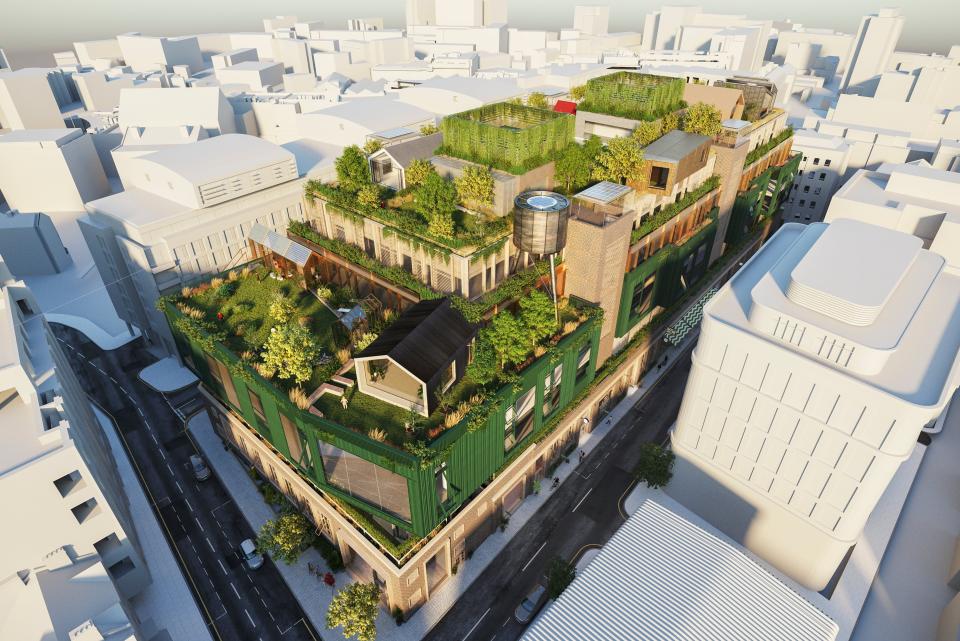Fines to pines: London’s first urban forest to rise above former Blackfriars Crown Court

Roots in the Sky: How London’s first urban forest over the former Blackfriars Crown Court building will look
(Fabrix)A disused London court building is to undergo a “fines to pines” transformation that will see its rooftop turned into London’s first urban forest.
Designs approved by councillors show how the former Blackfriars Crown Court show how 100 established trees and 10,000 plants will create a 1.1 acre woodland high above the streets of Southwark.
The site on Pocock Street, where justice was once handed out in eight courtrooms, was sold to the property investor Fabrix for a reported £65 million last year.
The 1960s building, which opened as a court in 1993 when it was originally known as Knightsbridge Crown Court, will be turned into 385,000 sqft of office and community space known as Roots in the Sky.

Designs for the new project have been approved by Southwark Council
FabrixThe first two storeys will be retained and six new levels will be created above using a steel and timber frame strong enough to support 1300 tonnes of soil with 1.5 metre deep tree pits.
As well as the forest it will have a publicly accessible rooftop restaurant and bar and an infinty pool heated by the building’s waste. It will have a glass bottom allowing swimmers to peer into the workspaces below.

100 established trees and 10,000 plants will create a 1.1 acre woodland high above the streets
FabrixFabrix chief executive Clive Nichol said: “This building anticipates the shift in the way people are thinking about their working life post-COVID. It’s designed with generous spaces and natural ventilation, access to nature and a mix of uses that reflects new ways of working and living.
“For us community use goes further than a coffee roastery – it’s about creating daily connections between the neighbourhood and those using the building for work and leisure. We hope that Roots in the Sky serves as a statement on the value of sustainable, community-led development.”

